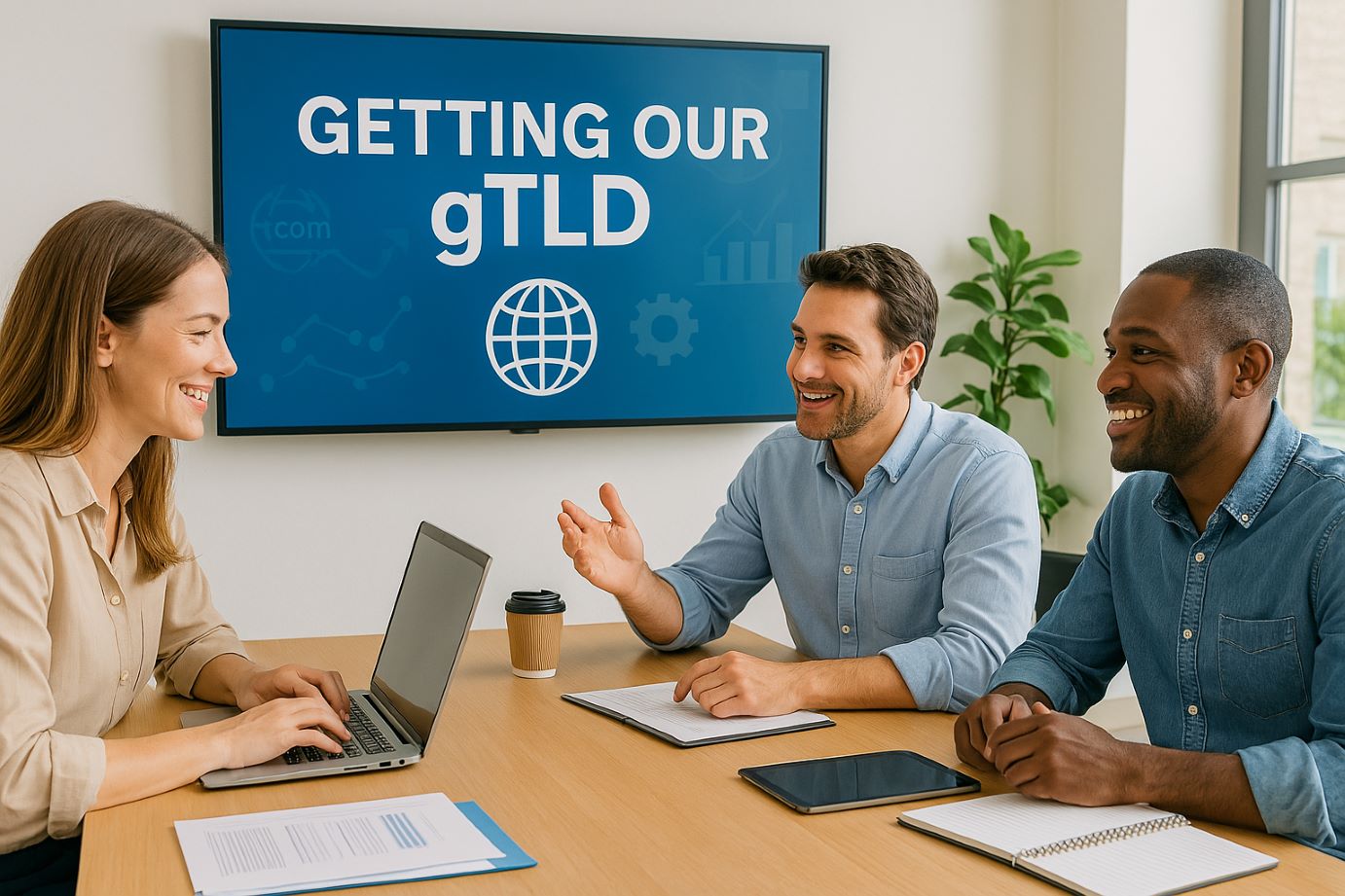
Thinking about carving out your own unique space on the internet? Whether you’re a brand looking to offer peace of mind through an instantly recognizable online identity, an organization aiming to empower users with personalized digital identities, or a city or region seeking to unify and represent your community – applying for your own generic Top-Level Domain (gTLD) could be the game-changing move that defines your digital future.
With the next application round opening in Spring 2026, now’s the perfect time to prepare. This guide walks you through the latest timeline, key updates, and what you’ll need to turn your idea into an actual TLD on the root zone.
The next few months are crucial for preparing your gTLD application. Whether you’re applying for one TLD or several, organizing your resources and assembling your team is a top priority in order to get your own generic Top-Level Domain (gTLD).
Here’s how to break down the application journey into manageable phases, with actionable steps and real-world examples to keep you on track.
What to do:
Example:
A retail brand like “Stylehaus” may apply for .stylehaus to strengthen its identity and improve customer trust, while a local government may pursue .losangeles to serve its city’s online needs.
Don’t forget:
If you’re from an underserved region and believe you may qualify, now’s the time explore to ICANN’s Applicant Support Program (ASP). Successful applicants can receive 75–85% off the $227,000 application fee. Learn more through TLD Class for Applicant Support.
With your foundational pieces in place to get your own gTLD. Now, it’s time to refine your application strategy.
What to do:
Example:
A fintech company applying for .epay should now finalize its compliance strategy, select a backend RSP with strong DNSSEC and anti-abuse capabilities, and prepare contingencies for contention sets.
As we enter the final stages of preparation, your focus should shift to finalizing and submitting your application to get your own gTLD.
What to do:
Heads up:
Fees for special cases (e.g., geographic TLDs or community applications) haven’t been published yet, so build in some buffer into your budget.
The application window will only remain open for 15 weeks – and missing it means waiting potentially another decade. ☹ So, it’s critical to be ready.
What to do:
The base application fee covers a range of evaluations performed by ICANN. However, additional service fees may be required depending on the type of gTLD you’re applying for.
Fee Type | Amount (USD) |
Base Application Fee | $227,000 |
Additional Services | Varies – TBD |
While you hope to never have to withdraw your application, it’s important to understand your auction strategy and integrate it with ICANN’s refund policy.
Withdrawal Timing | Refund |
Up to 10 days after String Contention | 65% |
Until Evaluation Phase Begins | 35% |
Before Registry Agreement | 20% |
The 2026 round introduces important updates that could affect your strategy:
You can now propose a backup string in case your primary string is contested — helpful, but not a guarantee of avoiding contention.
Example:
If you apply for .greenenergy and face competition, you might include .cleanpower as your replacement string.
Private settlements between applicants for the same TLD are no longer allowed. If your string is contested, you’ll face an ICANN auction of last resort, where the highest bidder wins.
Tip: Budget wisely and be ready for auctions if your chosen string is competitive.
Brand TLD applicants in contention can submit a Brand String Change Request, modifying their string by adding a descriptor to avoid contention. The final TLD may not be an exact match to the registered trademark.
Acquiring a gTLD isn’t just a technical process — it’s a strategic investment in your digital future.
For brands, it offers a trusted, recognizable space that deepens customer engagement and streamlines marketing, communications, and support.
For businesses, it unlocks new opportunities for recurring revenue through domain sales, premium offerings, and strategic partnerships.
For geographic regions, it creates a distinct digital marketplace that promotes local culture, commerce, and civic identity.
For communities, it provides a meaningful digital home — a space where people connect, collaborate, and grow.
To get your own gTLD, you’ll need thoughtful planning, committed resources, and a clear vision of how your TLD aligns with your long-term goals.
But for those who approach the process with foresight and purpose, the rewards are significant — from greater visibility and brand authority to enhanced trust and full control over your digital presence for years to come.
Now is the time to take the first step toward owning a space on the internet that’s truly yours.
Subscribe to Our Monthly Newsletter
Join our mailing list to receive exclusive content only our newsletter members have access to.